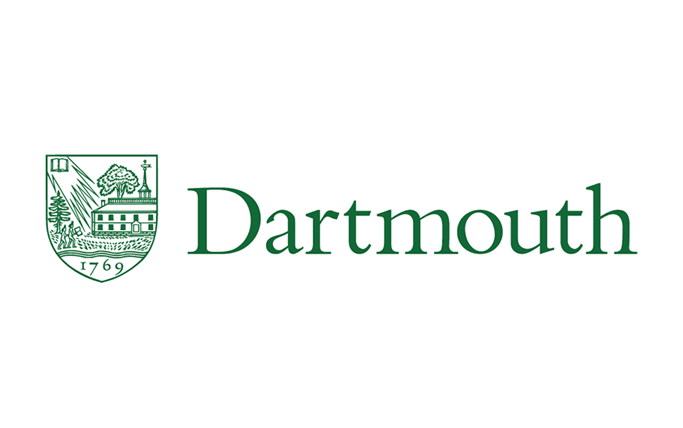
Why Dartmouth?
By
Dylan Rivera
July 28, 2025
•
2
min read
Share this Article
Simply highlight text to share on social or email
Founded in 1769, Dartmouth College blends the intimacy of a small liberal arts college with the academic rigor and resources of an Ivy League university. Nestled in scenic Hanover, New Hampshire, Dartmouth offers students a close-knit community, deep faculty engagement, and remarkable research opportunities at an institution that values undergraduate education above all.
What truly makes Dartmouth stand out isn’t size—it’s the blend of liberal arts flexibility, research access, community values, and intellectual ambition that defines the Dartmouth experience.
What Dartmouth Is Known For
Organized into the Faculty of Arts & Sciences and the Thayer School of Engineering, Dartmouth offers over 40 departments and more than 60 majors. Whether you’re studying environmental science, public policy, neuroscience, or computer science, collaboration across disciplines is the norm—not the exception.
What Sets Dartmouth Academics Apart
Dartmouth provides the best of both worlds: an Ivy League, research university but with the teaching and undergraduate focus of a liberal arts college. As such, it prides itself on small class sizes, one-on-one learning, and flexible academic exploration. Dartmouth’s core mission targets “undergraduate promise” with faculty dedicated to teaching, not just research. Sixty percent of undergraduates engage in research by senior year. Your thesis may lead to co-authorship—with faculty capitalizing on Dartmouth’s teacher-scholar model.
Here are some of the distinguishing features of Dartmouth academics:
- Student-Faculty Ratio & Class Size: With a student-faculty ratio of 7:1 and most classes under 20 students, Dartmouth fosters meaningful interactions and personalized learning.
- Explore Before Choosing: Undergraduates can explore a wide array of courses—over 40 departments—before declaring a major. First-year seminars are capped, ensuring direct faculty mentorship and introducing students to Dartmouth’s seminar-style discussions and academic discourse.
- UGAR & Research Network: Faculty across all schools mentor undergraduates year-round in laboratories or independent projects. Undergraduate Advising & Research (UGAR) supports programs such as WISP, Presidential Scholars, and senior fellowships.
- Summer Programs: ASURE (Academic Summer Undergraduate Research Experience) welcomes external undergraduates to 8 weeks of faculty‑driven research (deadline ~February 3, 2026) and Dartmouth’s NSF REU in Materials Science hosts a fully funded materials research program.
Life at Dartmouth & Student Culture
A tight-knit intellectual community meets rural beauty at Dartmouth. With just over 4,400 undergraduates, faculty truly know their students by name and there is an intimate undergraduate campus life.
However, Dartmouth’s sense of community goes beyond academics. Undergraduates are grouped into House communities—like Allen, School, or South House—where first- and second-year students live together, build lasting friendships, and often form connections across four years. These Houses serve as the hub for advising, events, and dining, creating a deep sense of belonging that’s rare at larger institutions.
Campus Environment & Traditions
Nestled in Hanover, New Hampshire, Dartmouth offers access to nature in every season—whether it’s skiing, hiking, or rowing on the Connecticut River. The proximity of campus to the outdoors reflects Dartmouth’s longstanding values of intellectual ambition paired with personal wellness and balance.
Student life thrives through energetic athletics, outdoor excursions, Greek and non-Greek social organizations, and a culture that celebrates tradition and quirkiness alike.
What Kind of Student Thrives at Dartmouth?
Dartmouth looks for more than academic excellence—it values curiosity, collaboration, and a sense of purpose. Students who succeed here are often:
- Curious across disciplines: whether you’re mixing public policy & environmental science, engineering & ethics, or neuroscience & creative writing.
- Eager contributors: joining research labs, service initiatives, or community-engaged learning opportunities.
- Grounded and self-aware: valuing modesty, integrity, and working within a community, not just competing with it.
The school emphasizes the teacher-scholar model: professors are equally committed to undergraduate teaching and meaningful research—a true liberal arts ethos within an Ivy League setting.
Dartmouth Essays: What to Expect & How to Stand Out
Dartmouth requires four essays: one personal statement via the Common App and three short supplemental prompts (one at 100 words, two at 250 words each)
Prompt 1 (100 words): As you seek admission to Dartmouth's Class of 2029, what aspects of the college's academic program, community, and/or campus environment attract your interest? How is Dartmouth a good fit for you?
Prompt 2 (choose one, 250 words), choice between two prompts:
1. There is a Quaker saying: Let your life speak. Describe the environment in which you were raised and the impact it has had on the person you are today.
2. "Be yourself," Oscar Wilde advised. "Everyone else is taken." Introduce yourself.
Prompt 3 (choose one, 250 words), choice between seven prompts:
- What excites you?
- Labor leader and civil rights activist Dolores Huerta recommended a life of purpose. "We must use our lives to make the world a better place to live, not just to acquire things," she said. "That is what we are put on the earth for." In what ways do you hope to make—or are you already making—an impact? Why? How?
- In "Oh, The Thinks You Can Think," Dr. Seuss invites us to "Think and wonder. Wonder and think." Imagine your anticipated academic major: How does that course of study sync with Dr. Seuss's advice to you?
- The social and family interactions of wild chimpanzees have been the focus of Dame Jane Goodall's research for decades. Her understanding of animal behavior prompted the English primatologist to see a lesson for human communities as well: "Change happens by listening and then starting a dialogue with the people who are doing something you don't believe is right." Channel Dame Goodall: Tell us about a moment when you engaged in a difficult conversation or encountered someone with an opinion or perspective that was different from your own. How did you find common ground?
- Celebrate your nerdy side.
- "It's not easy being green…" was the frequent refrain of Kermit the Frog. How has difference been a part of your life, and how have you embraced it as part of your identity, outlook, or sense of purpose?
- Buddy Teevens '79 was a legendary and much-beloved coach at Dartmouth. He often told parents: "Your son will be a great football player when it's football time, a great student when it's academic time, and a great person all of the time." If Coach Teevens had said that to you, what would it mean to be "a great person"?
Here are a few tips to set yourself apart from the other applicants, curated by our AtomicMind essay mentors:
- The first question is your typical why us/why you, but at 100 words, it’s very tight! Be sure to answer both sides of this question by identifying specific opportunities at Dartmouth and connecting them to specific aspects of your profile.
- Be authentic: your stories should feel true and memorable—not strategic or generic.
- Use your limited word count wisely: don’t repeat yourself, give new insights into yourself and the way you think with every answer.
- If you’re worried about choosing the wrong prompt among all of these choices, don’t worry! The choice of prompt isn’t important here, but rather the authenticity of your responses. Pick the prompts that speak to you the most, because this will allow you to enjoy writing your responses.
Financial Aid & Admissions Strategy
Dartmouth practices universal need-blind admissions, meaning that financial circumstances never influence admission decisions. Once admitted, Dartmouth meets 100% of demonstrated need through grants, not loans.
Final Thoughts
Dartmouth offers a singular college experience: Ivy League rigor paired with liberal arts intimacy, a deep ethos of community, and meaningful faculty engagement. If you’re someone who craves both academic depth and human connection, Dartmouth is likely a place where you’ll thrive.
Need help with your Dartmouth application?
At AtomicMind, our mentors—many former admissions officers—can help you clarify your story, target Dartmouth’s values, craft essays that feel authentic, and refine your application strategy with confidence.
Let’s help you show Dartmouth not just what you’ve done, but who you are.

About the Author: Dylan is a Head Advisor at AtomicMind based in Southern California. He graduated from Stanford University with a major in International Relations and a minor in French. His passion for learning and education shaped his current endeavor of helping students design their own unique path to college, which he does in addition to his hobbies of hiking, traveling, and reading.

Share this Article



